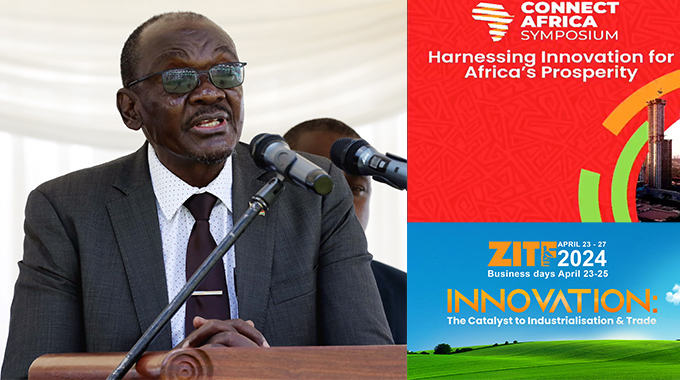93,783 on ARTs in Midlands
Midlands Bureau Chief
A TOTAL of 14,926 patients had been put on Anti-Retroviral Therapy in the Midlands by December 2013 bringing the number of people on ART to date to 93,783, a senior official has said.
Addressing captains of industry at a breakfast meeting yesterday, Gweru District Medical Officer, Dr Shakespeare Mureyani, said of the new cases on ART, 13,712 were adults while 1,214 were children.
“On adults who were newly initiated on ART, we had a target of 12,000 but we beat the target by 1,712. We performed beyond expectations. However, we failed to match the same feat on children newly initiated on ART. From a target of 250, we only managed to initiate 1,214. This was mainly due to a number of challenges. It is worrying that 50 percent of children on ART die before they reach the age of two years,” said Dr Mureyani.
Dr Mureyani noted that there was a low paediatric ART uptake while Opportunistic Infections/ART initiating sites were still few.
He said quality patient monitoring remained a challenge especially at decentralised sites resulting in deaths.
“In the province, 1,443 patients are reported to have died due to challenges in quality patient monitoring. We had ARV drug interruptions in Gokwe South.
It’s not all gloomy as we have our success stories. All districts are conducting OI/ART outreach activities. The programme is being funded by the National Aids Trust Fund also known as Aids levy. General Medical Officers (junior doctors) were trained in paediatric ART while mentorship programmes started to improve paeds ART,” said Dr Mureyani.
He also said 16 sites were accredited to initiating sites while Provincial Office managed to conduct support and supervision activities.
Meanwhile, the number of people in the Midlands who contracted sexually transmitted diseases (STI) has increased from 19,671 in 2012 to 20,306 last year.
The review was for the age group between 25-49 years for the period ranging from January to September of years under review.
Dr Mureyani said Gokwe South, Zvishavane and Vungu district constituted over 50 percent of the recorded cases.
He said of the 20,306 cases recorded last year, 12,349 cases were females while 7,957 were males.
Dr Mureyani, however, said the recorded cases had dropped marginally as compared to the same period last year.
“We recorded 20,306 cases of sexually transmitted infections (STI) between January and September last year. In 2012, we had recorded 12,419 cases of STIs during the same period under review. This shows there has been a marginal increase in STI cases recorded in the province.
“Females are more at risk compared to men,” he said.
Dr Mureyani said there was a very low turnout to voluntary male circumcision in the province.
“We were targeting 9,450 people between 15 and 49 years to undergo voluntary male circumcision last year but we only managed to circumcise 6,861,” he said.
Meanwhile, Midlands Minister of State for Provincial Affairs, Cde Jason Machaya, said the HIV epidemic remained a threat to economic recovery as it affected mostly people in the prime of their productive lives.
In a speech read on his behalf at yesterday’s breakfast meeting by Thompson Siziba, an assistant in the Provincial Administrator’s office, Cde Machaya said increased morbidity and mortality related to HIV has contributed to a reduction in labour supply and decreased disposable incomes.
Said Cde Machaya: “Such developments create negative effects on, markets, savings, investment and consumer spending. As part of the national multi-sectoral approach to HIV and Aids, private sector organisations have a key role to play in scaling up HIV prevention, care, treatment and support”.
He urged more companies to come up with comprehensive workplace policies and programmes addressing HIV prevention, care and support.
Cde Machaya said such programmes will help the country to achieve its national commitment towards of “Zero new infections”.









Comments